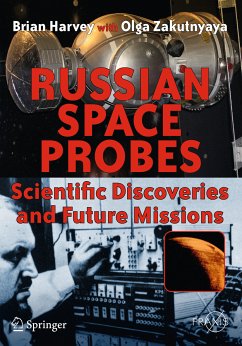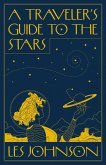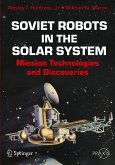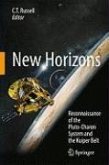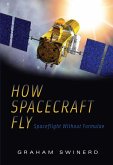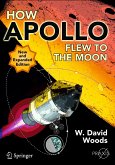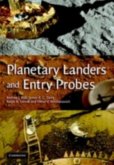The Soviet Union began the exploration of space with the launch of Sputnik in 1957, well over 50 years ago, and sent the first probes to the Moon, Mars, and Venus. Less well known is what these probes actually found out. What were the discoveries of Russian space science? What new discoveries may we expect in the future? Who were Russia's most important scientists? Russian Space Probes gives for the first time the definitive history of Soviet-Russian space science, and is the first book to assess the actual achievements of the Russian space program in furthering our knowledge of the Solar System. Among other projects covered are missions such as Elektron, which mapped the Earth's radiation belts; the astrophysical observatories Astron, Kvant, Gamma, and Granat; Proton, which trapped cosmic rays; Prognoz, which measured solar radiation; and the Interball, Aktivny, APEX, and Magion mission in which satellites chased each other in the Earth's magnetic tail. The final part of the bookexamines the future of Russian space science and looks at planned new missions, such as the Spektr series of space observatories, and return flights to the Moon and Mars, including a sample of Phobos.
Dieser Download kann aus rechtlichen Gründen nur mit Rechnungsadresse in A, B, BG, CY, CZ, D, DK, EW, E, FIN, F, GR, HR, H, IRL, I, LT, L, LR, M, NL, PL, P, R, S, SLO, SK ausgeliefert werden.
From the reviews:
"This well-researched book begins with a discussion of early Soviet balloon flights, followed by coverage of the Sputnik era and the Soviet lunar, Venus, and Mars probes. Harvey ... and Zakutnyaya, a science journalist, provide good descriptions of numerous Soviet experiments related to space biology and materials science. ... Overall, the book provides an excellent account of the extensive scientific results/accomplishments of Soviet space programs. ... An important contribution to the history of space science. Summing Up: Highly recommended. All readers." (A. M. Strauss, Choice, Vol. 49 (3), November, 2011)
"The country's descent from technological and scientific dominance is clearly demonstrated by this book, which summarizes in considerable depth the scientific missions and discoveries made by the former Soviet Union. ... the entire book is taken up with descriptions of scientific endeavours undertaken during the 1960s and 1970s. ... This well-researched volume provides a valuable account of many experiments and missions which have previously been poorly documented in the West." (Peter Bond, The Observatory, Vol. 132 (1227), April, 2012)
"This well-researched book begins with a discussion of early Soviet balloon flights, followed by coverage of the Sputnik era and the Soviet lunar, Venus, and Mars probes. Harvey ... and Zakutnyaya, a science journalist, provide good descriptions of numerous Soviet experiments related to space biology and materials science. ... Overall, the book provides an excellent account of the extensive scientific results/accomplishments of Soviet space programs. ... An important contribution to the history of space science. Summing Up: Highly recommended. All readers." (A. M. Strauss, Choice, Vol. 49 (3), November, 2011)
"The country's descent from technological and scientific dominance is clearly demonstrated by this book, which summarizes in considerable depth the scientific missions and discoveries made by the former Soviet Union. ... the entire book is taken up with descriptions of scientific endeavours undertaken during the 1960s and 1970s. ... This well-researched volume provides a valuable account of many experiments and missions which have previously been poorly documented in the West." (Peter Bond, The Observatory, Vol. 132 (1227), April, 2012)

